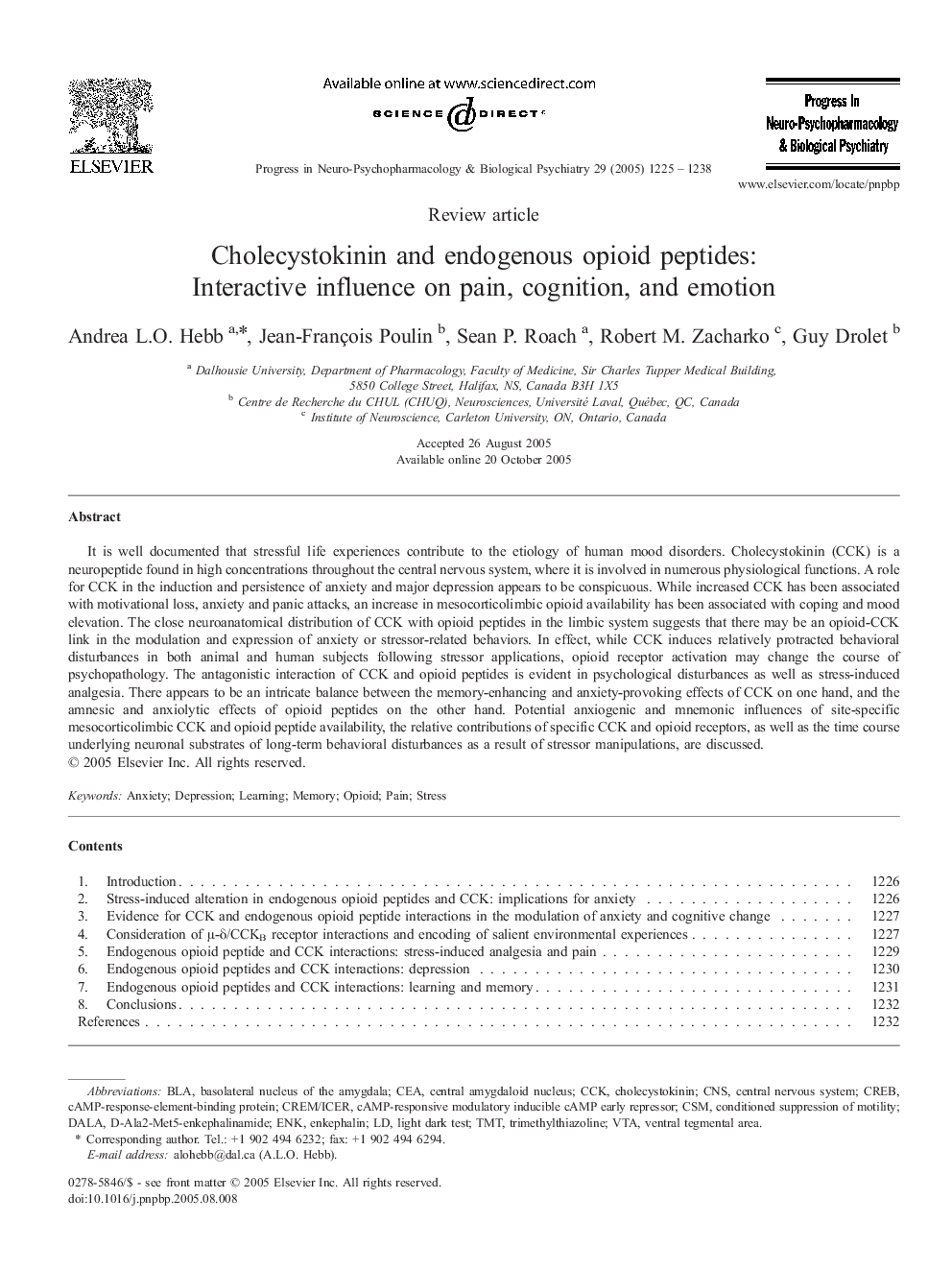| Article ID | Journal | Published Year | Pages | File Type |
|---|---|---|---|---|
| 9016559 | Progress in Neuro-Psychopharmacology and Biological Psychiatry | 2005 | 14 Pages |
Abstract
It is well documented that stressful life experiences contribute to the etiology of human mood disorders. Cholecystokinin (CCK) is a neuropeptide found in high concentrations throughout the central nervous system, where it is involved in numerous physiological functions. A role for CCK in the induction and persistence of anxiety and major depression appears to be conspicuous. While increased CCK has been associated with motivational loss, anxiety and panic attacks, an increase in mesocorticolimbic opioid availability has been associated with coping and mood elevation. The close neuroanatomical distribution of CCK with opioid peptides in the limbic system suggests that there may be an opioid-CCK link in the modulation and expression of anxiety or stressor-related behaviors. In effect, while CCK induces relatively protracted behavioral disturbances in both animal and human subjects following stressor applications, opioid receptor activation may change the course of psychopathology. The antagonistic interaction of CCK and opioid peptides is evident in psychological disturbances as well as stress-induced analgesia. There appears to be an intricate balance between the memory-enhancing and anxiety-provoking effects of CCK on one hand, and the amnesic and anxiolytic effects of opioid peptides on the other hand. Potential anxiogenic and mnemonic influences of site-specific mesocorticolimbic CCK and opioid peptide availability, the relative contributions of specific CCK and opioid receptors, as well as the time course underlying neuronal substrates of long-term behavioral disturbances as a result of stressor manipulations, are discussed.
Keywords
Related Topics
Life Sciences
Neuroscience
Biological Psychiatry
Authors
Andrea L.O. Hebb, Jean-François Poulin, Sean P. Roach, Robert M. Zacharko, Guy Drolet,
